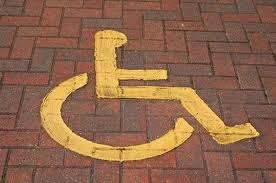What are “Reasonable Modifications” for Disabled Tenants?
 While renting to disabled tenants is common for many landlords and property managers, some have never had a disabled person submit a rental application. This post will clear up what might be some unknowns.
While renting to disabled tenants is common for many landlords and property managers, some have never had a disabled person submit a rental application. This post will clear up what might be some unknowns.
It’s important to know that disabled persons are protected by law. The Fair Housing Act (FHA) protects people with physical or mental disabilities that substantially limit one or more major life activities. These disabilities include mobility, hearing and visual impairments, chronic alcoholism, mental illness, HIV/AIDS and mental retardation. Landlords may not discriminate against these people, nor against those who have a history of such disabilities or are regarded by others as though they have such a disability (in other words, have no formal diagnosis).
- Landlords are not allowed to request medical records or ask prospective tenants if they are disabled.
- Landlords must not assume a prospective tenant cannot live in certain housing. For example, an applicant in a wheelchair cannot be told there are no vacancies if a third-floor apartment is available.
- Landlords may not turn down mentally disabled applicants on the basis of their condition alone. If they have threatened or harmed others in the past, then that could be grounds for rejection.
Reasonable Accommodations
At their expense, landlords must accommodate disabled tenants within reason. This means adjusting rules such as where garbage must be placed or allowing a close-by parking space. Each of these would fall under the “reasonable” category. Installing an elevator so a tenant who uses crutches can reach an upstairs unit would not.
Disabled tenants must be allowed to make reasonable modifications to their rental units or common areas in order to live comfortably and safely. For example, a tenant with a wheelchair-bound child must be allowed to widen the doorway to the bathroom and install bars around the tub and toilet at their own expense. Furthermore, the landlord may not require the tenant to return the doorway to its original condition (since it does not interfere with the next tenant’s use and enjoyment of the premises) but may require the tenant to remove the grab bars and return the walls to their original condition.
Other examples of reasonable accommodations include lowering countertops in the kitchen for a tenant using wheelchairs, installing an extra-loud doorbell for a hearing-impaired tenant or altering appliances so a visually impaired tenant can use them. All of these modifications must be requested verbally or in writing, approved by the landlord and paid for by the tenant. Landlords may ask for the unit to be returned to its original condition upon termination of the lease.
Landlords are permitted to ask for a description of proposed modifications, along with proof they will be done according to the law and in a workman-like manner.
Have questions? Learn more with the U.S. Department of Justice and Department of Housing and Urban Development’s joint statement on the subject, which can be found here.

Add A Comment
You must be logged in to post a comment.